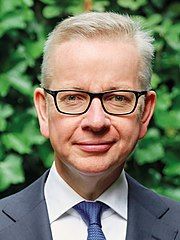The government is introducing legislation to prevent local authorities, non-governmental organisations (NGOs) and companies from boycotting countries. Most of the controversy at the latest debate on the bill in Parliament centred on Israel and the Boycott, Disinvestment and Sanctions (BDS) campaign. That is despite the fact that those campaigning on behalf of China’s Uyghur minority have criticised the bill. These activists contend it will hit their attempts to hold the Chinese government to account.
It is important to note at the start that this legislation did appear in the Conservative Party’s 2019 general election manifesto. The government can therefore legitimately claim it has a mandate to press ahead with the bill. A government minister, Michael Gove, speaking during the parliamentary debate on 3 July, has maintained that local authorities exist to provide services that central government delegates to them. He emphasised it was not the place of local authorities to meddle in foreign policy.
His point has considerable force. Local authorities, elected on a much smaller turnout than in a general election, have no mandate to flout government policy. The issue would be marginally less clear if there was strong evidence that the public as a whole favoured a boycott. That is if the government was elected in spite of the appearance of the bill in its manifesto, but there is no evidence that such support exists. For example the public is clearly not in favour of a complete boycott of China. Yet, whatever Israel’s faults, they are considerably less than those of the People’s Republic.
However, local authorities do have the right to protest and to seek to modify policy. In the parliamentary debate mentioned above Lisa Nandy, a Labour shadow minister identified one of the main flaws in the bill. As it stands is that it would criminalise authorities saying they would join a boycott even if such a boycott was legal. That would be a clear infringement of free speech.
Even if it was conceded that local authorities could not institute a complete boycott of Israel other measures may be possible. For example, pension funds could withdraw their investments in Israeli companies. Anti-Israel campaigners could argue that their ability to take such measures is a form of freedom of expression. They could also point to the billions of dollars that have flowed out of Israel as a reaction against the government’s controversial judicial reform package.
Local authorities do have a legal duty to maintain good relations between the various communities they serve. It is easy to see how a complete boycott of Israel would impair community relations in certain areas of the country. However, the same cannot be said of a boycott of West Bank settlements. In the past Gwynned, Leicester and Swansea councils have voted to boycott goods from such settlements. These moves have had no obvious impact on communal relations.
In fact one of the main weaknesses of the bill is that it emphasises there is no difference between Israel proper and the settlements. Another of Nandy’s arguments was that the bill would probably contravene international law in that regard. The American government’s recent decision to cease cooperation with Ariel university in the West Bank highlights this weakness all the more.
If the government is determined to press ahead with the bill it will undoubtedly go on to the statute books. It is a matter of protocol that the House of Lords can seek to amend proposals in a manifesto but never block them. However, with Conservative MPs opposing aspects of the bill, it is almost certain that it will have to be modified to meet their concerns. Labour has made it clear it will only support a watered down version of the bill. This is no bad thing as it does seem the bill is a disproportionate measure.
Guy Whitehouse is a member of the Academy of Ideas and the Free Speech Union. His views do not necessarily reflect those of those organisations.
The views expressed in this article do not necessarily reflect those of the Radicalism of fools project.
PHOTO: "Michael Gove Official Portrait Cropped" by UK Government is licensed under CC BY 2.0.

